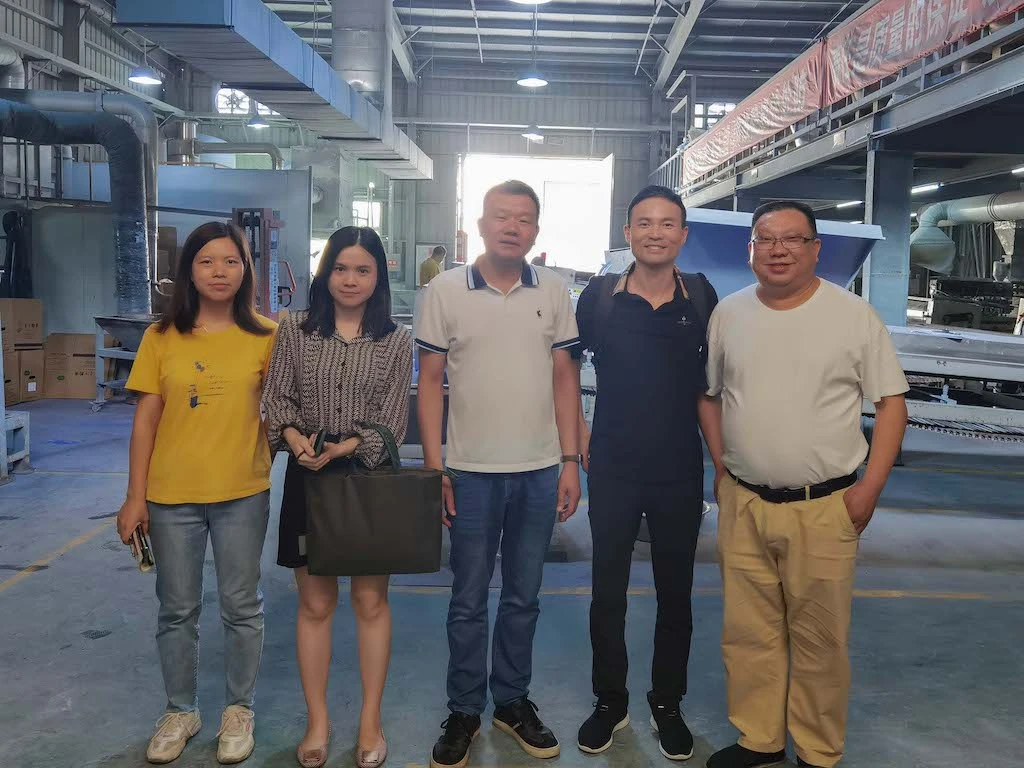

Our factory audit services provide a comprehensive assessment of a supplier’s manufacturing facilities. We evaluate their management system, facilities, production processes, quality control measures, and compliance with safety and environmental standards.
Assessing whether the chosen factory meets manufacturing standards through a factory audit helps to make products that meet customer expectations, uphold worker rights, and adhere to environmental commitments. Strict implementation of China factory audits ensures that your supplier adheres to the promises, thereby preventing any potential letdowns that could harm your hard-earned reputation.
Selecting the right factory is a critical decision. While China offers exceptional manufacturing potential, it is vital to have clear, enforceable expectations to exploit this opportunity and avoid dishonest manufacturers entirely.
After candidate suppliers are selected, we conduct factory compliance audit to narrow down the right one to meet the requirements of our clients. An onsite comprehensive assessment of a factory is referred to as a factory audit. The primary objective is to confirm if a manufacturer possesses the necessary expertise to fulfill a particular order.
Testing supplier's seriousness
While some suppliers may decline 3rd party factory audits, others might be reluctant to reveal their production facilities to foreign entities. With our established trust and rapport with Chinese suppliers, we can perform factory audit in China on your behalf, provided the company is genuinely interested in doing business with overseas importers.
Finding out supplier's operations
During factory audit, we assess if the supplier has matured and structured systems in place, and if their operations are well organized. The disparity between well-run and poorly managed factories becomes evident in audit scores, noticeable by our experts. For example, we will have strict factory production control over the factories, well planned production lines are designed in a way that the assembly and packing operations happen in a logical and effective way, so the products can be finished efficiently, stably, and with the least possibilities of defects.
Knowing manufacturing capability
When evaluating factories for manufacturing, our experts focus on key components and critical processes. We will identify major risks and create mitigation plans. We will also investigate the origin of critical components and parts, make sure the factory has the needed capability to complete the production in professional and sustainable way.
Predict whether their product can meet your quality standards
A low score in a quality system audit is certainly a big concern for you. We have done many factory audits for our clients, which clearly indicated a correlation between higher factory audit scores and better performance in quality control, thereby underscoring the importance of a thorough audit.
Find out whether they maintain process discipline
With overseas clients visiting less frequently, some manufacturers may slack off, affecting their long-term performance. We will assess if the company maintains process discipline to ensure consistent factory quality control and prevent prolonged lapses.
We will go to the root of the problem, if any
Even established suppliers also undergo organizational changes, staff issues, and operational fluctuations. For existing suppliers, monitoring is crucial. Problem resolution and prevention necessitate assurance of consistent and effective countermeasures, which are best achieved through onsite auditing.
Followup audits
Some companies conduct regular factory compliance audits, often bi-monthly, as part of a structured process audit plan. It is ideal for driving continuous improvement in supplier relationships. We will evaluate these aspects and do follow-up factory audits if necessary.
Maple Sourcing is committed to ensuring that the products you purchase meet high-quality standards, safety regulations, and compliance with your requirements. We also prioritize ethical and environmentally friendly production conditions. To explore how we can assist you in advancing your sustainable import strategy, please get in touch with us today.
Send email to sales@maplesourcing.com or fill below form
Quality of Auditors
Each auditor undergoes rigorous training and certification processes to ensure they are well-versed in international factory audit standards and best practices. Their keen attention to detail and analytical skills enable them to identify potential issues and areas for improvement effectively.
Ethical Standards
At Maple Sourcing, ethical standards are paramount. We enforces a strict code of conduct that all auditors must adhere to, ensuring integrity and transparency in every factory audit in China. Auditors are trained to maintain impartiality and confidentiality, safeguarding the interests of clients while upholding the highest ethical standards.
Extensive Experience
With years of experience in the field, Maple Sourcing has developed a deep understanding of the complexities involved in China factory audits. This extensive experience allows us to anticipate potential challenges and address them proactively. Clients benefit from the auditors' wealth of knowledge, as it enables them to provide practical recommendations and solutions that drive continuous improvement and compliance.
Our China factory audit services thoroughly examines suppliers' facilities, certifications, and operational practices to ensure reliability and compliance.

Auditors examine the manufacturer’s production processes to ensure they are efficient, reliable, and capable of meeting production targets.

As an important part of factory audit services, the audit includes an evaluation of the factory quality control systems to ensure they can consistently produce high-quality products.

Worker safety confirmation is an important step in factory compliance audit. The audit involves a review of the manufacturer's worker safety measures to ensure compliance with labor laws and regulations.

Auditors assess the manufacturer’s environmental practices to ensure they are sustainable and comply with environmental regulations.